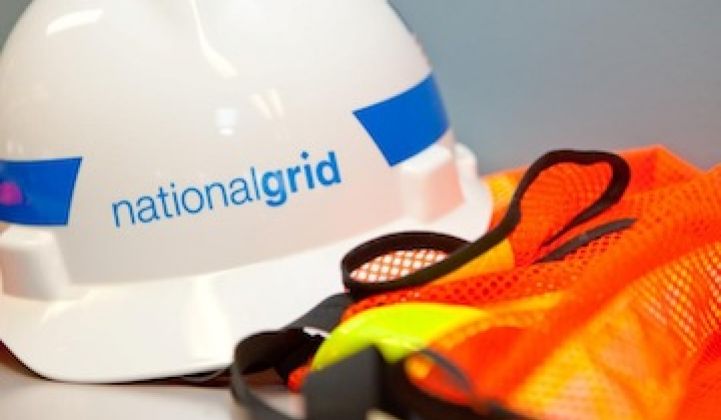Sometime in 2014, National Grid is poised to deliver the “energy system of the future.”
The energy system, which will involve nearly two dozen vendors, will not touch National Grid’s 3.3 million electric customers. Instead, the pilot will be tested on 15,000 customers in Worcester, Mass.
The pilot is comprehensive, with everything from distribution automation partners to in-home energy management tools. National Grid (NYSE:NGG) said that the project is meant to provide customers with a “new level of choice and control over their energy use through advanced technology, with the goals of empowering customers to save energy, increasing electric service reliability and improving response to power outages.”
Cheri Warren, vice president of asset management for National Grid, described the vendors as a "dream team." “They are the best and brightest in their respective disciplines and share our vision for delivering exceptional benefits for customers,” she said in a statement. Big names like Itron (Nasdaq: ITRI), Cisco (Nasdaq: CSCO) and General Electric (NYSE: GE) lead the pack, but it is unclear just how big a win it is for vendors large and small.
Despite what National Grid is calling the largest, most comprehensive pilot in the Northeast (the competition wasn’t stiff), it’s tough to glean what it will mean down the road. With federal dollars long gone for large smart grid projects, most utilities are treading lightly into large projects. For the utilities that have already gone forward, however, many are finding that end-to-end projects, rather than just smart meters, for instance, offer a greater benefit to the company and its customers.
National Grid said that the focus on the customer is a key difference that sets this pilot apart. Customers will be able to choose their level of involvement and how they receive information about their energy use -- whether online, in the mail or through mobile apps. While the pilot may be comprehensive for the Northeast, it is simply a test of technologies that other utilities are deploying widely.
The Worcester pilot, which was estimated at $57 million, will likely grow into something bigger, but just how big is unclear. When the pilot was first announced in 2009, National Grid noted that it “hopes to gain valuable information from the pilot that it can use in the future to develop a smart grid on a wider scale."
Since 2009, the utility has not clarified what it means by "in the future" or "wider scale." It says it will make decisions as it evaluates the results of the pilot. "When the pilot concludes," said Deborah Drew, spokesperson for National Grid, "we will consider what may follow that would provide benefits to customers in other areas of our service territory."
The complete list of vendors from National Grid is below:
- BRIDGE Energy Group and Ernst & Young: Project management and integration services
- Itron: Advanced metering infrastructure and meter data management, home area networking and advanced communication technology
- Cisco: Advanced communication technology and network management
- General Electric: High speed network using WiMAX communication technology for communication among devices on the electricity distribution system
- Verizon Enterprise Solutions: Advanced IP and wireless communications services
- IBM: Will be implementing legacy system integration
- Wipro: Web development services
- CEIVA Energy, EcoFactor, Simple Energy and Itron: In-home technology solutions
- GridMaven: End-to-end communications network monitoring and management solutions
- Navigant -- evaluation services to monitor and measure the success of the pilot
- SmartMark Communications: Customer educational communications to enhance customer participation
- S&C Electric Company, G&W Electric Company, Beckwith Electric Co Inc.: Advanced distribution automation for the electricity distribution system
- Schweitzer Engineering Laboratories, Lindsey Manufacturing Company and Power Delivery Products: Advanced capacitor control and monitoring for the electric system



